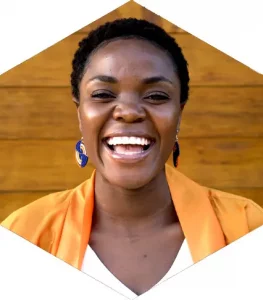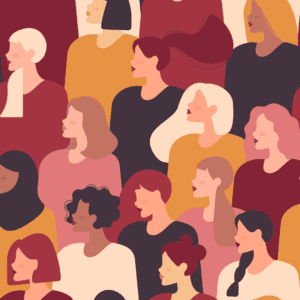(Editor’s note: Although this article speaks specifically to women who have experienced sexual violence, we acknowledge that this problem is not restricted to women and impacts those of all genders, ages, and backgrounds. Sexual violence is a pervasive problem that leaves no one untouched.)
1 OUT OF 3 WOMEN HAVE EXPERIENCED SEXUAL VIOLENCE.
Because of the prevalence of sexual violence in our world, we must stop sexist comments, behavior, and policies that degrade, demean, and objectify the bodies of women. We must also surround survivors with support so that they can find healing and thrive. The #MeToo movement has allowed women and girls to recognize that they are not alone. Even those who have not experienced sexual violence are willing to walk this journey with you.
What Is Sexual Violence?
Sexual violence is any sexual act or attempt to obtain a sexual act by violence or coercion, acts to traffic a person or acts directed against a person’s sexuality, regardless of the relationship to the victim. This includes:
- Penetration (rape)
- Fondling and unwanted touch or advances
- Catcalling and sexual comment
- Being forced to perform sexual acts
If you have experienced any form of sexual violence, these are important to know:
1. IT IS NOT YOUR FAULT.
There will be moments where you might replay what happened and say, “I shouldn’t have been there,” “I shouldn’t have said that,” or “I shouldn’t have smiled.” But it is not your fault when violence is directed toward you. The blame falls solely on the perpetrator.
2. YOUR CLOTHES HAD NOTHING TO DO WITH IT.
For many survivors, the first question people ask is, “What were you wearing?” As if an outfit would change whether or not someone got raped. Unfortunately, rape happens to so many, from babies who are months old to women beyond 70. Your clothes will never be a reason for the blame to fall on you.
3. WHERE YOU WERE DOES NOT PUT YOU AT FAULT.
Sometimes we may think, “I shouldn’t have gone to that party, that’s why it happened”, but you are not at fault. The shame is not for you to carry, no matter how late it was or where you were.
4. JUST BECAUSE THEY’RE YOUR PARTNER DOESN’T JUSTIFY THE ASSAULT.
The perpetrator may have been someone you were in a relationship with, but it does not mean they have a right over your body. There are moments when you might feel obligated to allow them to touch you or go further than you’re comfortable with, but your “no” is valid. If you’re unsure, uncomfortable, or quiet, even that is enough to say, “I don’t want this.” Even if there is no penetration, when the other person crosses your boundary it is sexual assault.
5. SEXUAL ASSAULT COULD HAPPEN WITH OR WITHOUT PENETRATION.
The perpetrator may try to make excuses for their behavior like, “There wasn’t penetration, I only kissed you,” but that is a lie. Even if there was no penetration, any unwanted sexual advances or touches qualify as sexual assault.
Living with the knowledge that you have been sexually assaulted is difficult, but you are not alone. There are people who will walk with you through your healing process. When you begin to revisit those moments that you wish did not happen, or when the blame and shame come back, remember that the blame belongs to the perpetrator who hurt you.
Mental Health Practice
Bring yourself back to the center and remind yourself that what happened wasn’t your fault. Try this exercise called the butterfly hug. Place your feet flat on the ground and either cross and touch your arms or put your hands on your thighs. Slowly inhale for five counts, and exhale for five counts. Begin to alternate tapping on your arms, closing your eyes if preferred. This exercise helps our bodies feel grounded, loved, and settled.
Try playing a song that makes you feel connected to God while doing the butterfly hug. If you prefer silence, try saying affirming words to yourself. You are loved, you are worthy, and the shame is not yours.
 Jean Nangwala’s passion for social justice stems from her personal experience of injustice and witnessing the same inequality across the globe. She holds an undergraduate degree in psychology and a minor in media studies. During her undergraduate studies, Jean volunteered at a juvenile facility and witnessed the gravity that broken systems have on the lives of the vulnerable. Her passion is exploring new policies which will help alleviate systems that perpetuate social injustice. She is currently interning with a United Nations-affiliated organization and works with the United Nations Ecumenical Women Initiative in New York City. Her dream of working for the UN will allow her to continue her mission of empowering women to bring critical changes to society.
Jean Nangwala’s passion for social justice stems from her personal experience of injustice and witnessing the same inequality across the globe. She holds an undergraduate degree in psychology and a minor in media studies. During her undergraduate studies, Jean volunteered at a juvenile facility and witnessed the gravity that broken systems have on the lives of the vulnerable. Her passion is exploring new policies which will help alleviate systems that perpetuate social injustice. She is currently interning with a United Nations-affiliated organization and works with the United Nations Ecumenical Women Initiative in New York City. Her dream of working for the UN will allow her to continue her mission of empowering women to bring critical changes to society.
(This article was originally published through Freely in Hope here. It is republished with permission.)


